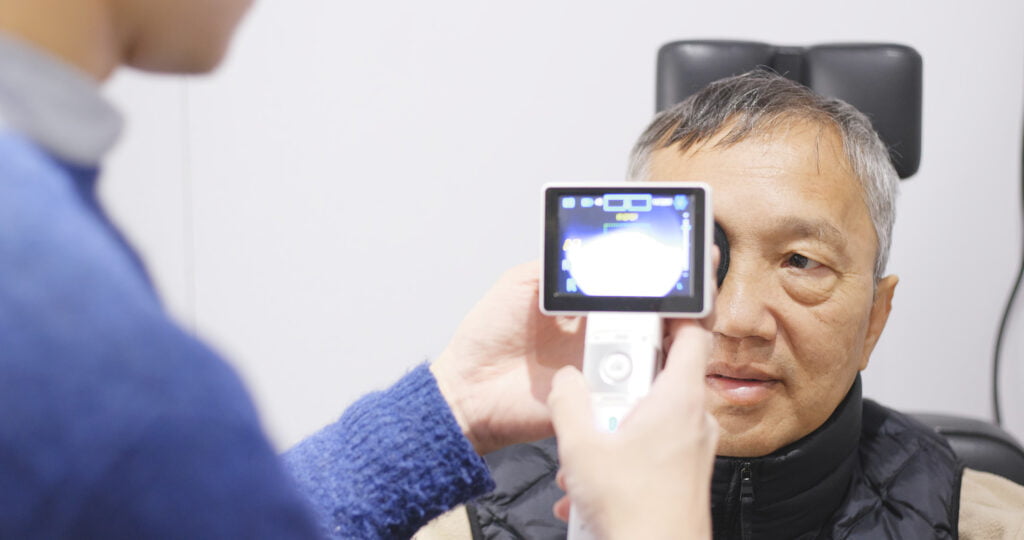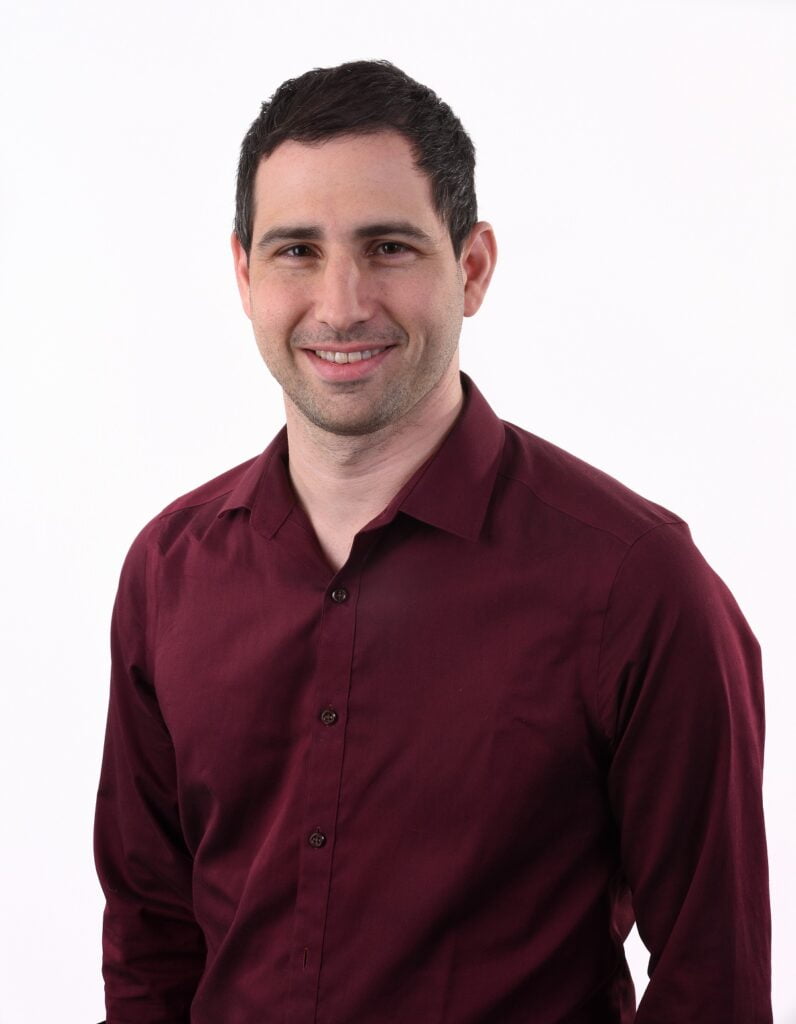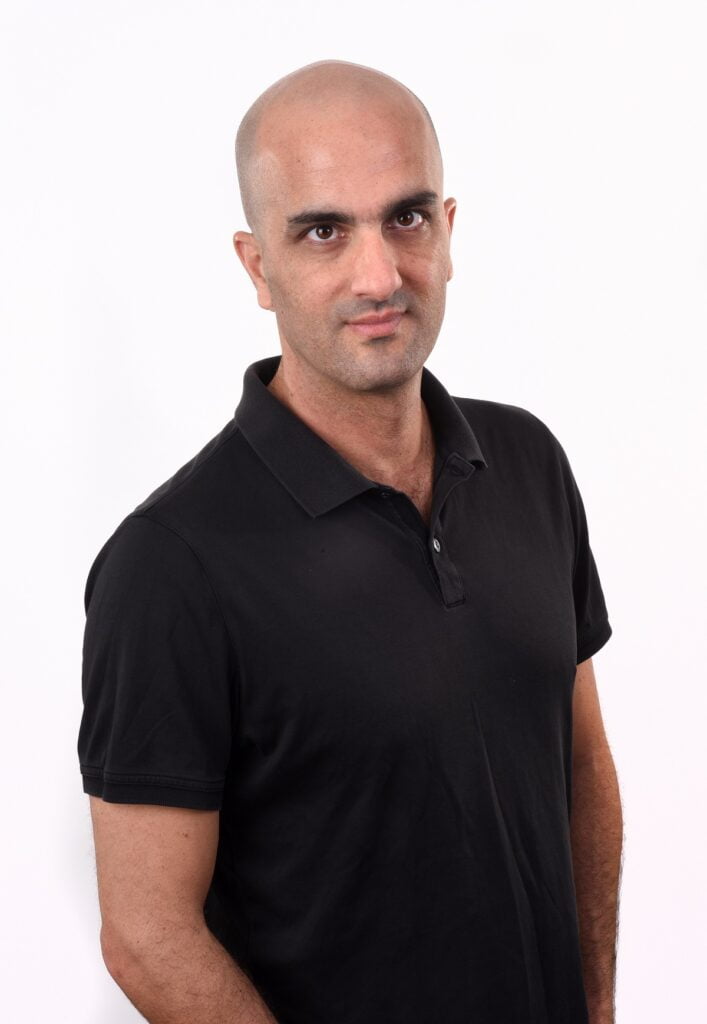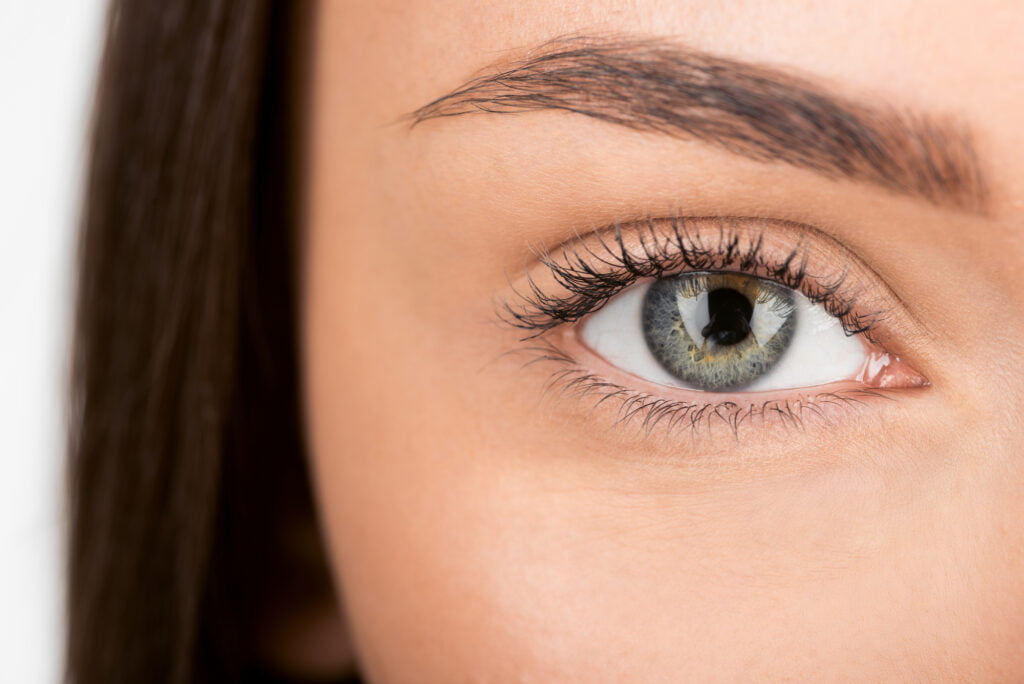There will be a day in the near future, Dr. Zack Dvey-Aharon believes, that people will pop by their local pharmacy for a quick eye scan that within 120 seconds will detect a variety of medical conditions, prevent avoidable blindness, and even save lives. It’s a system that Dvey-Aharon, CEO AEYE Health, is developing with the digital health company he helms.
The eye may be a window to the soul, but the retina is the window to our health and wellness. A retinal test can help diagnose various diseases including high blood pressure, heart disease, cancer, Alzheimer’s and various illnesses that lead to vision loss.
Yet, even though the medical field knows the importance of a retinal screening test, there are few specialists who can do it and too few in the population are aware of its importance.
SEE ALSO: Israeli Specialists Restore Eyesight Of Over 80 People In Papua New Guinea Aid Mission
AEYE Health, with offices in New York and Tel Aviv, is on a mission to create a new, more accessible and improved standard for retinal screening process.
“Our company has algorithms for a wide range of conditions,” says Dvey-Aharon. “Our goal is to enable this test to take place everywhere — pharmacies, primary care settings, hospitals. This requires not only
accurate algorithms but to make them work in real conditions.”

Real conditions that the software solution can fit all types of eye-scanner cameras from the bigger expensive ones found in ophthalmologist offices to portable or even mobile devices, explains Dvey-Aharon, an AI engineer and co-founder of AEYE Health. The AI software solution can be integrated into existing machines and be added to new devices not yet on the market.
The company has created algorithms – combining artificial intelligence, machine learning and computer vision technologies – that are based on hundreds of thousands of data examples and scan the retina to diagnose various eye diseases and other ailments.
“Our technology prowess is the ability to have high-quality results. Sensitivity, specificity, and high accuracy for many indications. We are able to work with any camera, and we put a big emphasis on handheld devices and more affordable solutions,” Dvey-Aharon tells NoCamels.

AEYE Health was founded in 2018 by Dvey-Aharon, who served in the 8200 intelligence unit and is a machine learning expert, and by COO Danny Margalit, former founding partner of Aladdin. The startup is hoping to make the retinal screening option more approachable.
While retinal imaging is a simple procedure, fewer than 25 percent of the high-risk population in the US goes to the doctor for an annual screening due to high costs and lack of easy access to such screening tests.
The CDC says there are an estimated 93 million adults in the United States at high risk for serious vision loss, but only half visited an eye doctor in the past 12 months. Moreover, vision disability is one of the top 10 debilities among adults 18 years and older in the US and one of the most prevalent disabling conditions among children, according to CDC data.
At the moment, family doctors refer patients to eye specialists. AEYE Health wants to see the day when general physicians, pharmacy technicians, nurses and other technicians can use a portable device to complete the eye scan. If the diagnosis shows an abnormality, the patient will only then be referred to a retinal specialist.
Sign up for our free weekly newsletter
Subscribe“If you look at the problem we’re trying to solve, 75 percent of the people are not being screened. Not because they don’t want to but because they are not aware or it’s too challenging or it’s expensive. What happens is many become blind within a few years. Dealing with a blind person is a lot more challenging, for the person obviously, but also for society, the insurance system, the workplace and so on,” Izik Itzhakov, VP Business Development, tells NoCamels. “As a society of entrepreneurs in healthcare, we need to focus on providing the tools for the people and for the healthcare system to prevent these things from ever happening.”
“Using our system, clinicians can detect a variety of medical conditions and prevent blindness,” says Dvey-Aharon.
As such, AEYE Health is hoping to secure FDA approval by the end of the year for its diagnostics platform that will simplify the screening test and allow primary care physicians, pharmacies, and hospitals to instantly screen these patients with its automated AI-based retinal screening system.
In July, UMass Memorial Health Care and AEYE Health announced they were using a grant from the Binational Industrial Research and Development Foundation to develop a software solution to be used
in hospitals.

The UMass Memorial Health Care-AEYE Health collaboration, if successful, will show how the integrated solution in a hospital, will enable “screening results to talk to the electronic medical records, which talk to the scheduling system. If this model works well, we can copy it to other hospitals and that could save sight for a lot of people,” says Dvey-Aharon.
Moreover, the AI diagnostic system could flag other diseases and send patients to specialists within the hospital environment.
“If we find a suspicious finding for cardiovascular health of a patient, we can do that referral inside the hospital environment. There are other types of success to generate from this cooperation,” says Dvey-Aharon.
Of course, AEYE Health is not the only company with AI technology for autonomous, noninvasive retinal screening. But Dvey-Aharon, an AI prodigy who started university at the age of 12, believes its noninvasive approach to diagnose various diseases by scanning the retina in the eye coupled with its ability to be integrated in different devices is nonetheless unique.
“It is not just important to have good algorithms but make sure it works with small, portable devices. A large emphasis of our work is to make our algorithms achieve top results on those kinds of devices,” says Dvey-Aharon. “That’s our advantage.”
Looking into the proverbial crystal ball, Dvey-Aharon says in the short term, he’d like to see AEYE Health’s solution deployed in hospital environments. But the bigger goal is to enable easy access to retina scans so that people can – and will – get tested more regularly and hopefully catch diseases early enough to be prevented.
SEE ALSO: NovaSight Raises $8M For ‘Pivotal’ Lazy Eye Treatment Device Study
“Using a relatively simple camera, within one or two minutes get an image of your eyes, and the report will indicate the next step: repeat the test next year or refer you to an opthamologist,” says Dvey-Aharon.
“We are providing easy care to people that is focused on prevention rather than correction. It’s as easy as walking into a CVS [pharmacy], putting your chin on a chinrest, and get screened and know within a few minutes if you’re going blind or not. It will cost a few dollars and I think everybody will do it. This is our way to deal with the essence of the problem which is people not being screened,” Itzhakov tells NoCamels.
Related posts

Editors’ & Readers’ Choice: 10 Favorite NoCamels Articles

Forward Facing: What Does The Future Hold For Israeli High-Tech?

Impact Innovation: Israeli Startups That Could Shape Our Future




Facebook comments